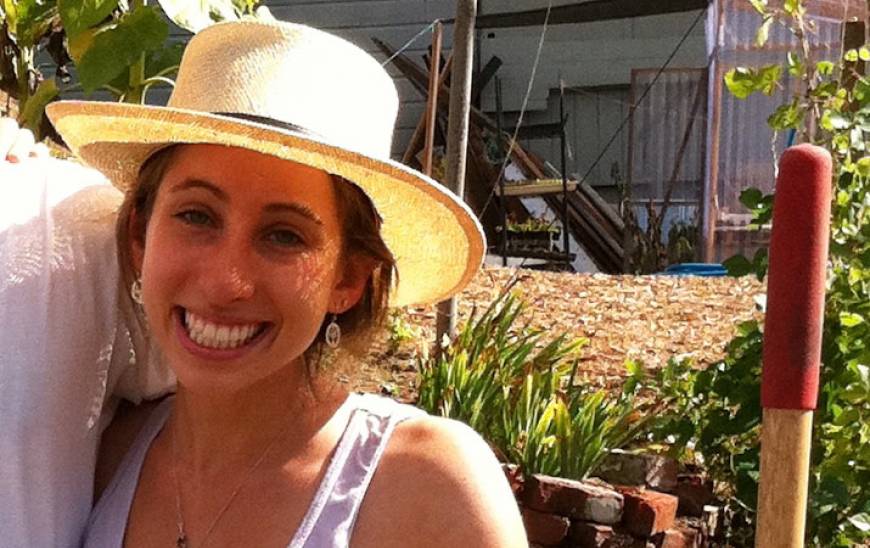The Stanford School of Earth, Energy & Environmental Sciences is now part of the Stanford Doerr School of Sustainability.
This page is currently being maintained for archival purposes only. For the latest information, please visit us here.
Hannah Kohrman is the 2011 winner of the William W. Whitley Citizen Scholar Prize
Stanford School of Earth, Energy & Environmental Sciences
September 2, 2011

Hannah Kohrman (BS '11) was named the 2011 Whitley Scholar for her dedicated, meaningful efforts in the areas of food justice and security. She has worked extensively on urban agriculture projects, engaged with her fellow Stanford students with community farming, and helped to bring free food to those most in need. Hannah will receive her BS in Earth Systems with a focus on land systems and sustainable agriculture. During her time at Stanford, Hannah was a teaching assistant for a “Food and Community” service-learning course that examined social justice issues and the history of urban community farming in San Francisco. She assisted with curriculum development and mentored students with their individual projects. Hannah was also the founding member of the Stanford Farm Project, a group that supports on-campus food production, dining sustainability, workers’ rights, local food justice, and campus community gardens. Hannah has been actively involved with the group since its inception in 2010. Hannah has also been active with community food projects, including the Free Farm and Free Farm Stand. Through these projects she helped to build community via urban gardens and collected unsold farmers’ market produce to donate to the needy. This summer Hannah will be working at Full Circle Farm, where she will help teach a children’s summer camp focused on food and health. She was instrumental in the design of the camp curriculum, which aims to educate children from low-income families about healthy eating through activities such as farming, cooking, culture, and the environment. Hannah’s other awards include the Dean's Award for Undergraduate Academic Achievement, which is given to graduating seniors in the School of Earth Sciences who demonstrate academic merit, as well as a Summer Undergraduate Research Fellowship through the School of Earth Sciences. Hannah is excited to pursue an MS in Earth Systems next year with a focus on urban agriculture, community-based urban food production, and food security. As a strong proponent of growing food in cities, she hopes to address concerns about the safety of urban agriculture. She plans to measure and compare the levels of environmental toxins found in vegetables grown in urban and non-urban areas.



